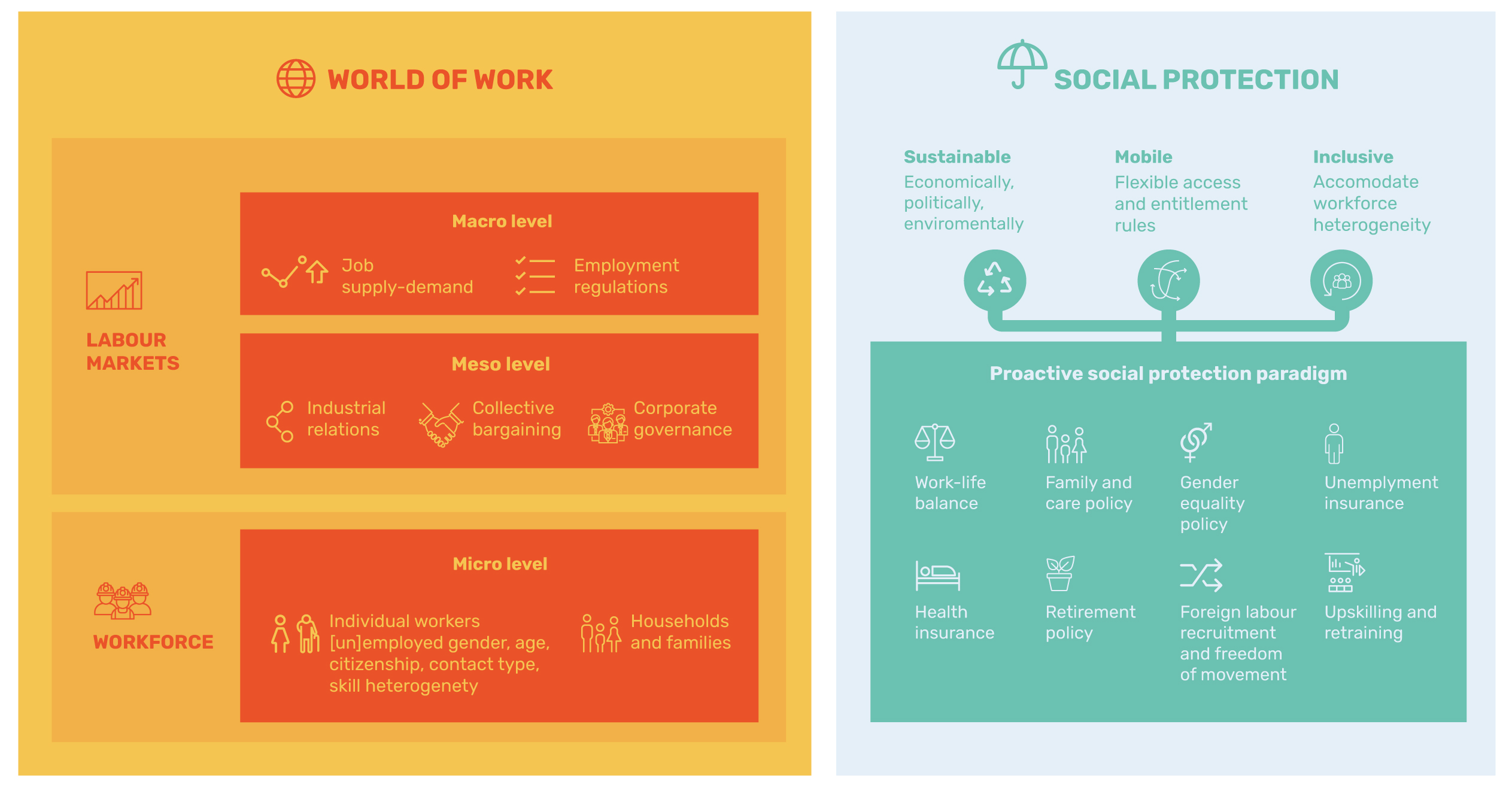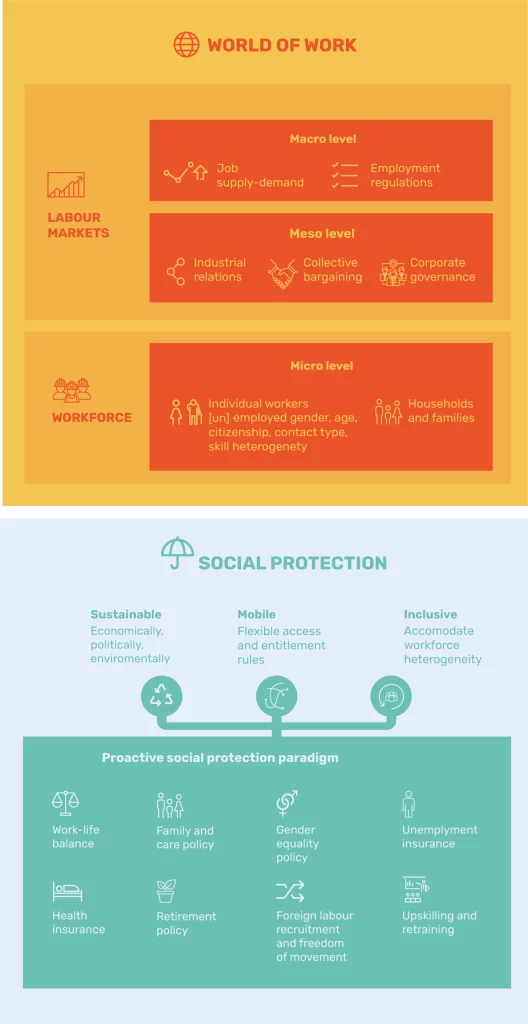
Aim
At the centre of TransEuroWorkS are three critical structural labour market transformations: green transition and decarbonisation, technological change, and the internationalisation of the workforce. With an attention to the effects of these changes on inequality, poverty, education, skill demand, and social exclusion, TransEuroWorkS addresses three main questions:
How do decarbonisation, technological change, and internationalisation of the workforce impact the world of work in Europe?
How can the EU and member states become more resilient and responsive to these changes and their impacts?
What are the implications of the changing forms of work and work relations on European citizens’ well-being and social protection?
To do so, TransEuroWorkS provides a practical theoretical approach and innovative empirical tools to produce insights, new data, original knowledge, and social innovations to identify the impact of labour market changes and new kinds of work forms on workers. The project then maps the social protection gaps and suggests potential new pathways for policy adjustments.
To achieve this goal, the research focuses on eight key policy areas:

Methodology
TransEuroWorkS proposes a comprehensive and multi-level approach to the world of work and social protection that guides the project’s design and implementation.
TransEuroWorkS proposes a comprehensive and multi-level approach to the world of work and social protection that guides the project’s design and implementation.
Workforce:
TransEuroWorkS will, conceptually and empirically, map the different categories of individuals and households potentially affected by these changes in work.
Labour market:
TransEuroWorkS concentrates on labour markets with a focus on exploring the impact of the three labour market transformations at the national and EU-level labour
Sustainable social protection:
Concerning the sustainability dimension, TransEuroWorkS highlights three different aspects:
Mobile social protection:
There are two critical types of mobilities in today’s world of work where existing social protection appears
Inclusive social protection:
Workers in sectors that are impacted by immigration, technological advancements, and decarbonization


